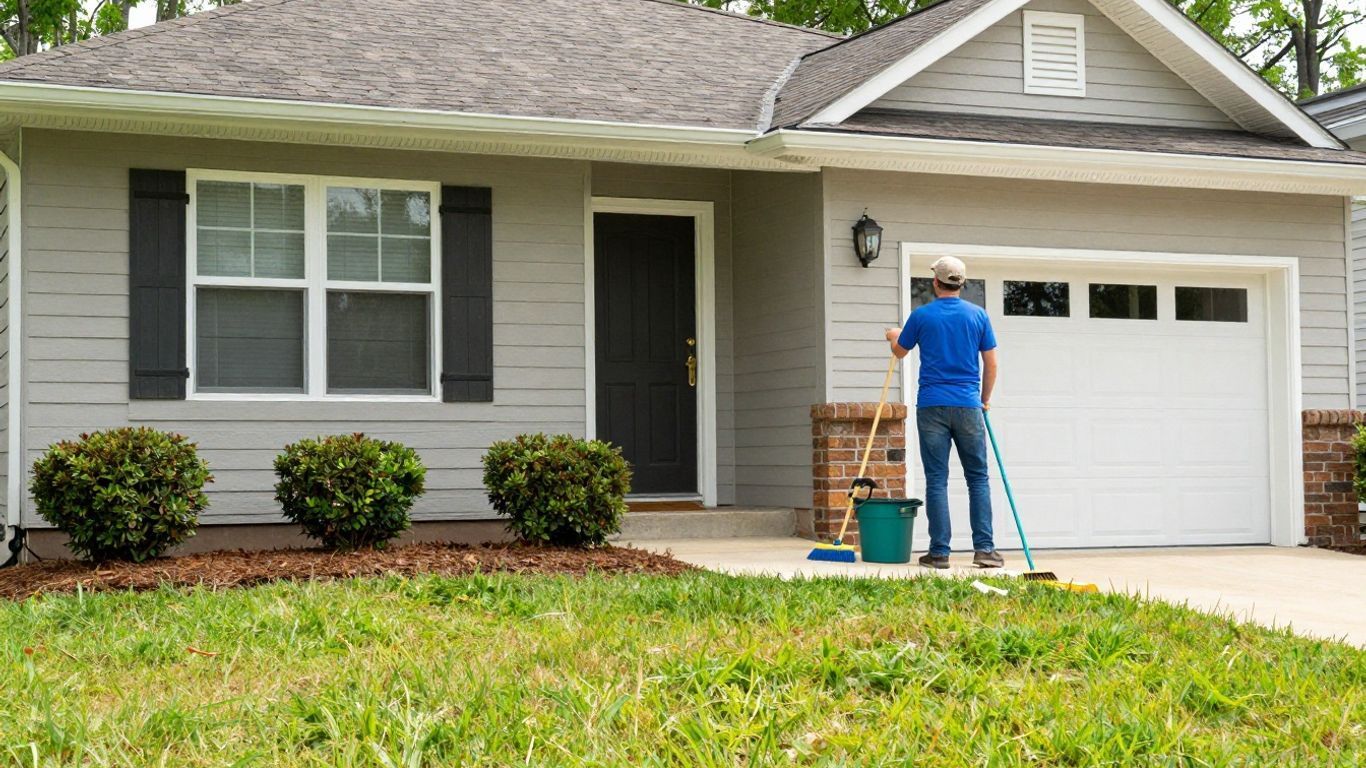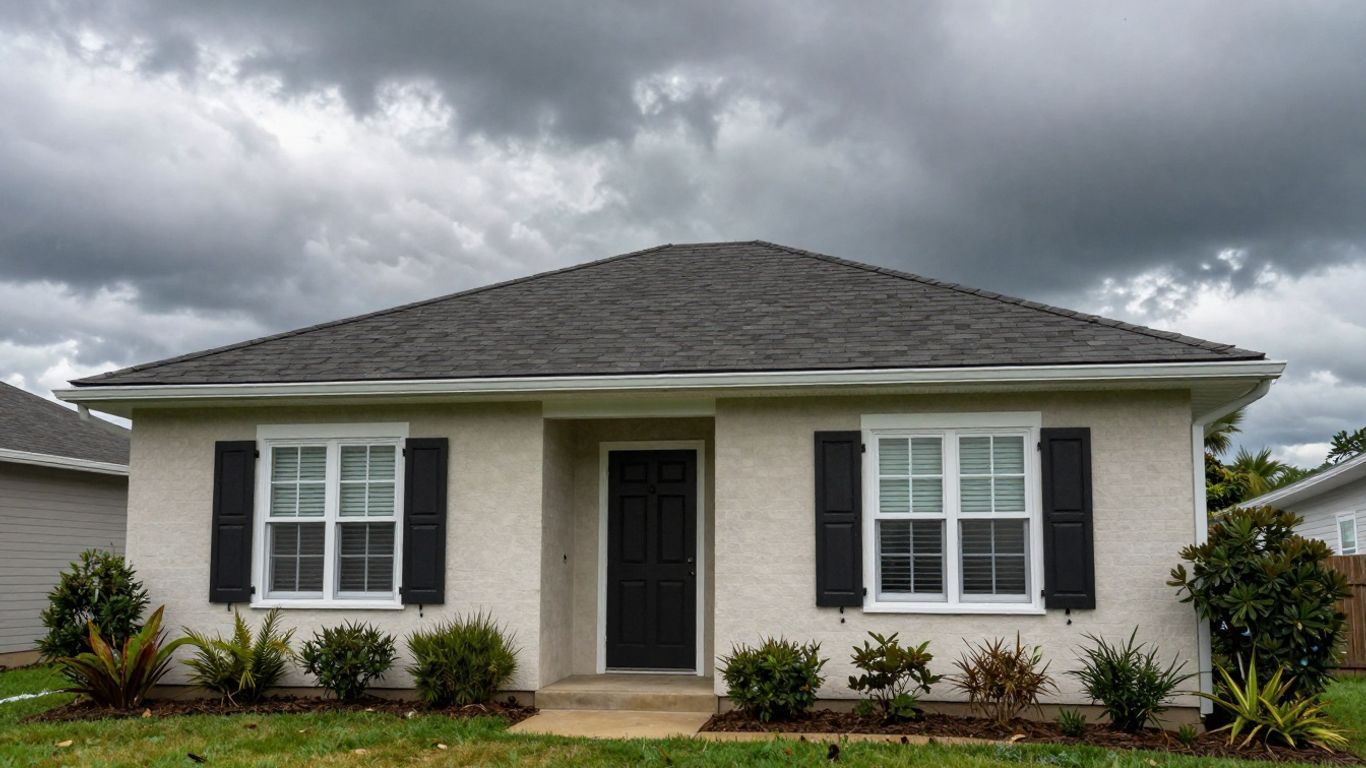Best Colors & Layouts for Custom Decks in Georgia This Year
Picking out the right colors and layout for a new deck can be a bit much, especially with all the choices out there. You want something that looks good, holds up to Georgia weather, and fits your house. This year, there are some great options for materials and designs that can really make your outdoor space pop. Whether you're thinking about a simple spot for grilling or a big area for entertaining, getting the colors and layout just right makes a big difference. We'll go over some popular choices that Northwest Georgia deck builders often use, helping you figure out what might work best for your place.
Key Takeaways
- Different deck materials have their own pros and cons for looks, upkeep, and how long they last.
- Wood options like Cedar and Redwood offer natural beauty but need more care.
- Man-made materials such as Composite and Vinyl are low-maintenance and come in many colors.
- Hardwoods like Ipe and Mahogany are super durable but cost more money upfront.
- Metal choices like Aluminum and Steel are strong and modern, good for unique designs.
1. Cedar
Cedar is a really popular choice for decks around here, and honestly, it's easy to see why. It just looks good, you know? Plus, it's got some natural defenses against rot and insects, which is a huge win in Georgia with all the humidity and bugs we get. It's not the cheapest option, but it's definitely a solid one if you're looking for something that'll last and look great.
Cedar decks offer a blend of natural beauty and decent durability.
Here's a few things to keep in mind if you're thinking about cedar:
- It will fade to a silvery-gray over time if you don't stain or seal it regularly. Some people like that look, some don't. It's all personal preference.
- It's softer than some other woods, so it can get scratched or dented more easily. Think about how much foot traffic your deck will get.
- You'll still need to clean and maintain it, even though it's naturally resistant to rot and insects. Don't skip out on the upkeep!
Cedar is a great choice for decks, offering natural resistance to decay and insects. Regular maintenance, including cleaning and sealing, is still necessary to preserve its appearance and extend its lifespan. Consider the cost and softness of the wood when making your decision.
If you're looking for a custom deck builder to help you decide, there are plenty of options around Atlanta.
2. Redwood
Redwood is a fantastic choice for decks, especially if you're aiming for a natural, warm look. It's got that beautiful reddish-brown hue that just screams quality. Plus, it's naturally resistant to decay and insects, which is a huge win in Georgia's humid climate. You won't have to worry as much about constant upkeep.
Here's what I've found to be important when considering redwood:
- Cost: Redwood can be a bit pricier than pressure-treated pine, so factor that into your budget.
- Maintenance: While it's durable, you'll still want to apply a sealant or stain every few years to keep it looking its best and prevent fading.
- Sourcing: Make sure you're getting your redwood from a sustainable source. Look for certifications that ensure responsible forestry practices.
Redwood is a softer wood, so it can be prone to scratches and dents. If you have pets or kids who are rough on things, you might want to consider a harder wood or a composite material. But if you're careful and willing to put in a little maintenance, redwood can give you a stunning deck that lasts for years. The natural beauty is hard to beat.
3. Pressure-Treated Pine
Pressure-treated pine is a really common choice for decks, and for good reason. It's budget-friendly and readily available at most home improvement stores. The treatment process helps protect the wood from rot, insects, and fungal decay, making it suitable for outdoor use.
Here's what you should know:
- Cost-effective: It's one of the more affordable decking materials.
- Durability: When properly maintained, it can last for many years.
- Availability: Easy to find at local lumberyards and home centers.
However, it's worth noting that pressure-treated pine can sometimes warp or crack over time, especially if it's not properly sealed or stained. Regular maintenance, like cleaning and applying a water repellent, is key to keeping it in good shape. You can find pressure-treated 2x4 lumber at your local hardware store.
Also, consider these points:
- It needs to be stained or sealed to protect it from the elements.
- The color can vary, so you might want to pick through the boards to find ones that match.
- It can be a bit rough, so sanding might be necessary for a smoother finish.
4. Composite
Composite decking is pretty popular these days, and for good reason. It's basically made from a mix of wood fibers and plastic, which gives you the look of wood without all the maintenance headaches. I've seen some really nice decks built with composite, and they seem to hold up well to the Georgia weather.
One of the biggest advantages is that it doesn't rot or splinter like real wood can. Plus, you don't have to stain or seal it every year, which saves a ton of time and money. It's a great option if you want a low-maintenance deck that still looks good.
Here are a few things to keep in mind if you're thinking about composite:
- It can get pretty hot in direct sunlight, so consider lighter colors if your deck gets a lot of sun.
- Initial cost is higher than pressure-treated pine, but the long-term savings on maintenance can make it worth it.
- There are different grades of composite, so do your research to find one that fits your budget and needs.
I helped my neighbor build a composite deck last summer, and it was a pretty straightforward process. The boards are easy to work with, and the finished product looks fantastic. He's already planning a big barbecue to show it off!
5. Vinyl
Vinyl decking is a popular choice, and for good reason. It's known for being low-maintenance and durable, which is a big plus for busy homeowners. You won't have to worry about staining, sealing, or painting it every year.
Here's what makes vinyl decks stand out:
- Moisture Resistance: Vinyl is practically waterproof, so it won't rot or warp like wood can.
- Low Maintenance: Just wash it down with soap and water occasionally.
- Variety of Styles: It comes in different colors and textures to match your home's style.
Vinyl decking can be more expensive upfront than some other materials, but the long-term savings on maintenance can make it a worthwhile investment. Plus, it's often made from recycled materials, making it an eco-friendly option.
However, there are a few things to keep in mind. Vinyl can get hot in direct sunlight, so consider lighter colors or adding shade. Also, while it's durable, it can be scratched or dented by heavy objects. If you're looking for deck and railings that are easy to care for and will last a long time, vinyl is definitely worth considering.
6. Ipe
Ipe, also known as Brazilian walnut, is a super dense hardwood that's become really popular for decking. It's got a naturally rich, dark brown color that can make any deck look high-end. It's definitely an investment, but it can really pay off in the long run.
Ipe is known for its incredible durability. It's so hard, it's naturally resistant to rot, decay, and insects, which is a huge plus, especially in Georgia's humid climate. You won't have to worry about termites or constant maintenance.
Here are a few things to keep in mind if you're considering ipe for your deck:
- It's expensive. Be prepared for a higher upfront cost compared to other decking materials.
- It's difficult to work with. Because it's so dense, you'll need special tools and techniques for cutting and fastening. It's best left to the pros.
- It requires regular oiling. To maintain its color and prevent it from fading, you'll need to apply a UV-protectant oil every year or two. Think of it like ipe hardwood needs sunscreen!
Ipe is a great choice if you want a deck that will last for decades with minimal maintenance. It's a premium material that adds value and beauty to your home. Just be sure to factor in the cost and installation challenges.
7. Tigerwood
Tigerwood is a really interesting option if you're looking for something a little different. It's got this really striking grain pattern, almost like stripes, which can make your deck a real focal point. It's definitely not for everyone, but if you want something that stands out, tigerwood could be it.
Tigerwood is known for its durability and resistance to rot and insects, which is a big plus in Georgia's humid climate. It's also a very dense wood, so it can handle a lot of wear and tear. However, it can be a bit more expensive than some other options, and it can be harder to work with because of its density. You might need special tools and a bit more experience to install it properly. If you're thinking about tigerwood, here are a few things to keep in mind:
- The color can vary quite a bit, so make sure you like the overall look before you commit.
- It needs to be properly sealed to prevent it from drying out and cracking.
- Garden decking installation can be a bit more involved, so consider hiring a professional.
Tigerwood is a great choice if you want a deck that's both beautiful and durable. It's a bit more of an investment, but it can really add value to your home. Just be sure to do your research and find a good installer if you're not comfortable doing it yourself.
It's also worth noting that tigerwood can fade over time if it's not properly maintained. Regular cleaning and sealing will help to keep it looking its best. And because it's a natural product, it can have some variations in color and grain, which some people see as a plus, adding to its unique character. But if you're looking for a perfectly uniform look, tigerwood might not be the best choice. Ultimately, it's all about personal preference and what you're looking for in a deck.
8. Mahogany
Mahogany is a fantastic choice if you're aiming for a deck that exudes a sense of luxury and warmth. It's a naturally beautiful wood with a rich, reddish-brown hue that deepens over time. I've seen some decks made with mahogany that look absolutely stunning, almost like a piece of fine furniture.
- Mahogany is naturally resistant to rot and decay, which is a big plus in Georgia's humid climate. You won't have to worry as much about constant upkeep.
- It's a relatively stable wood, meaning it's less prone to warping or twisting compared to some other options. This helps maintain the deck's appearance over the years.
- The smooth, even grain of mahogany makes it a pleasure to walk on barefoot. It feels really nice underfoot.
One of the best things about mahogany is its durability. It can withstand the elements and hold up well to foot traffic, making it a long-lasting investment for your outdoor space. It's a bit pricier than some other decking materials, but the longevity and beauty often make it worth the extra cost. Plus, the natural oils in mahogany help to protect it from insects, which is always a bonus.
It's definitely a material to consider if you want a deck that will impress and last for years to come.
9. Aluminum
Aluminum decking is becoming more popular, and for good reason. It's a great alternative to wood, especially if you're looking for something that will last. Aluminum is known for its durability and resistance to the elements.
Here's what you should know:
- Aluminum doesn't rot or warp like wood can.
- It's also resistant to insects, which is a big plus in Georgia.
- It can be more expensive upfront, but the long-term savings can be worth it.
Aluminum decks can get hot in direct sunlight, so consider lighter colors or adding shade structures. Also, make sure the aluminum cable railing is properly installed to avoid any safety issues.
Some things to consider:
- The initial cost can be higher than wood.
- It might not have the same natural look as wood.
- It can reflect sunlight, which might be a concern for some people.
10. Steel
Steel decks? Yeah, they're becoming a thing, especially if you're after something super durable. I mean, wood is nice and all, but steel? It's like the Terminator of decking materials. It's not going anywhere.
Steel framing is a great choice for decks that need to last. It's resistant to rot, insects, and fire, which is a big plus, especially in Georgia with our crazy weather. Plus, it can span longer distances than wood, meaning fewer support posts and a cleaner look.
Here's the thing, though – steel isn't exactly cheap. It's an investment, for sure. And you'll probably need a pro to install it, unless you're really handy with metalwork. But if you're looking for a deck that will outlive you, steel might be the way to go.
Here are some things to consider:
- Cost: Steel is more expensive upfront than wood.
- Installation: Requires specialized skills and tools.
- Maintenance: Very low maintenance, but may need occasional painting or powder-coating to prevent rust.
Steel decks are a great option for homeowners who want a durable, low-maintenance deck. While the initial cost is higher than wood, the long-term benefits can make it a worthwhile investment. Plus, you can contact our team to learn more about steel framing options.
Want to learn more about how strong steel is and what it's used for? Head over to our website for a deep dive into this amazing material. You'll find tons of cool facts and pictures!
Wrapping It Up: Your Dream Deck Awaits!
So, there you have it. Picking the right colors and layout for your new deck in Georgia doesn't have to be a headache. Think about what you like, what your house looks like, and how you want to use the space. A good deck can really change how you enjoy your home, making it a great spot for hanging out with friends or just chilling out. Don't be afraid to get some ideas from pros, either. They can help you figure out what works best for your place and your budget. With a little planning, you'll have a deck you love for years to come.
Frequently Asked Questions
What's the best color for a deck in Georgia?
The best color for your deck often depends on your home's style and your personal taste. Light colors can make your outdoor space feel bigger and cooler, while darker shades can offer a cozy, rich look. Consider colors that blend well with your house and yard.
Which deck materials are best for Georgia's climate?
For Georgia's weather, composite and pressure-treated pine are very popular because they hold up well against heat and humidity. Cedar and redwood are also good choices for their natural beauty, but they might need more upkeep.
How do I pick the right layout for my deck?
A good deck layout should fit your yard and how you plan to use it. Think about how many people will be on it, if you want different areas for eating or relaxing, and how it connects to your house. A professional can help you design the perfect layout.
Do I need a permit to build a deck in Georgia?
Yes, you usually need a permit for building a new deck or making big changes to an old one in Georgia. It's smart to check with your local city or county office before you start any work to make sure you follow all the rules.
How long does it take to build a deck?
The time it takes to build a deck can change a lot based on its size, how fancy the design is, and the weather. A small, simple deck might take a few days, while a big, complex one could take several weeks. Your builder can give you a better idea after seeing your plans.
How do I take care of my new deck?
To keep your deck looking good, clean it regularly to remove dirt and leaves. For wood decks, you might need to seal or stain them every few years to protect them from the sun and rain. Composite decks are easier to care for and usually just need washing.


